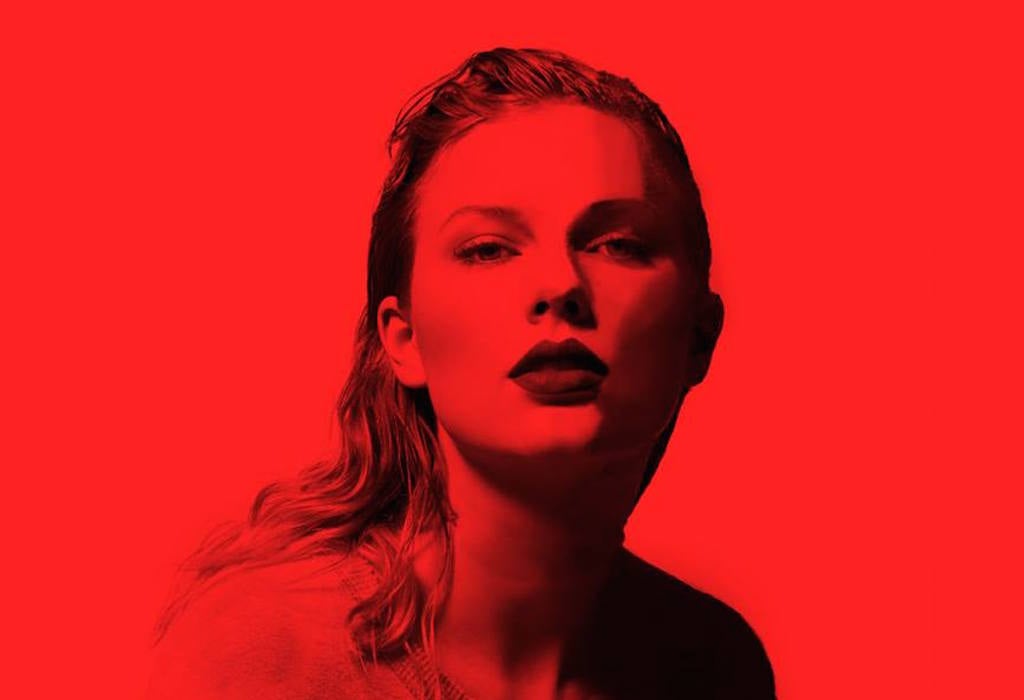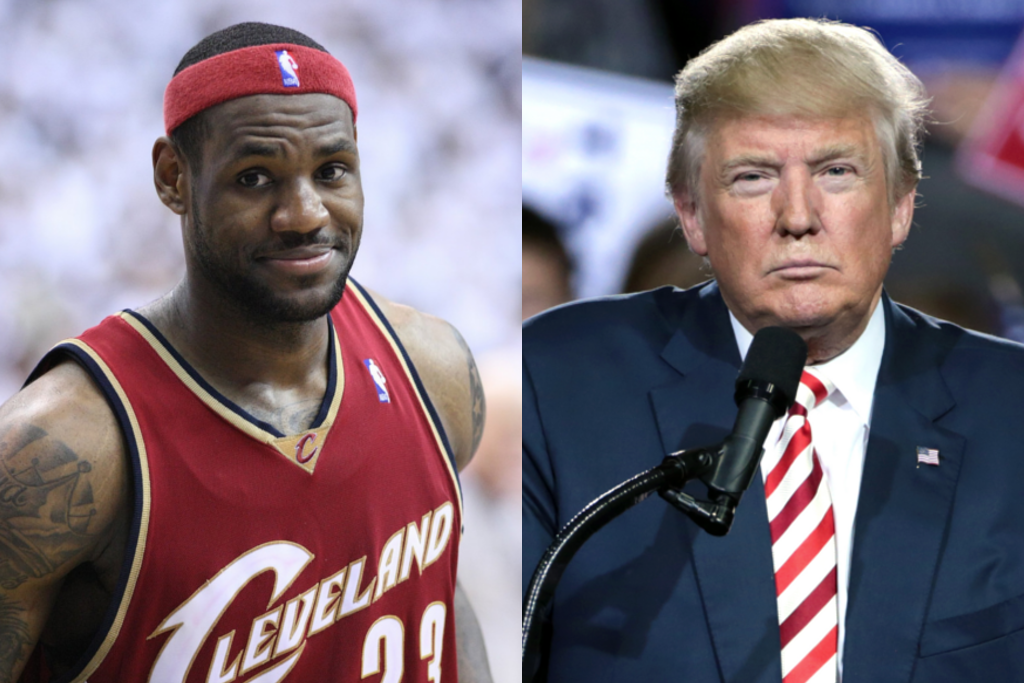Taylor Swift Losing The #1 Spot On The Charts Is About So Much More Than Music
All hail Cardi B.

Taylor Swift has been dethroned. This week rapper Cardi B’s track ‘Bodak Yellow’ bumped Swift’s ‘Look What You Made Me Do’ from the number one spot on the Billboard charts, making her the first solo female rapper to claim the top position since Lauryn Hill in 1998.
It’s an extraordinary achievement for an artist who built her reputation and profile without the backing of a major record label. But the success of ‘Bodak Yellow’ is about more than how much it bangs compared to ‘Look What You Made Me Do’.
Cardi B Vs. Taylor Is About More Than The Music
To fully understand the significance of this week’s music chart movements, we need to revisit Swift’s ‘Look What You Made Me Do’.
The extremely hyped track was Swift’s first single since ‘I Don’t Want To Live Forever’, her 2016 collaboration with Zayn Malik. As the first single off her upcoming album, Reputation, there was an expectation it would define her new sound — both musically and conceptually.
The song smashed streaming records and its accompanying video became the most watched music video within 24 hours. But it received mixed reviews from critics, including here at Junkee, for its obsessive focus on the ongoing feud between Swift and Kanye West.
But Taylor Swift in 2017 isn’t defined solely by her industry beefs, or even her music. As my colleague Katie Cunningham wrote last month, Swift’s “fairweather” relationship with feminism and silence on key social justice issues has started to define the narrative around her.
Swift stans complain that it’s an unfair criticism of someone who wants to focus purely on the music, but unfortunately for them this is the reality of contemporary pop culture. Like it or not, audiences want artists to speak up on issues they care about.
When someone embraces a particular brand of liberal feminism, as Swift did, but chooses to remain silent on Donald Trump because they’re concerned about impacting sales amongst their country music base, there’s inevitably going to be a backlash.
So the story of Taylor Swift isn’t just one about a miscalculated single and a perpetuation of an old feud, it’s about her absence of politics at a moment in history where the growth of social movements, particularly amongst young people, are pushing artists to do and say more.
Enter Cardi B.
Born Belcalis Almanzar, the Bronx raised rapper who has Trinidadian and Dominican ancestry represents the antithesis of Swift in pretty much every way.
Swift’s childhood was crafted around a future country music career, with her parents relocating to Nashville to help secure her record deals.
Cardi B spent her teen years in the Bloods street gang, working first as a supermarket cashier, and then as a stripper, so she could make money to escape from an abusive relationship.
Bitch I been a big time Blood since I was 16 sooo fuck is you talking bout ..ya just never peep it https://t.co/TNVa6OPqfl
— iamcardib (@iamcardib) May 7, 2017
Her popularity was built off the back of viral Vine and Instagram videos and self-released mixtapes, before she signed with Atlantic Records earlier this year.
Her first commercial single, ‘Bodak Yellow’ dropped in June and it’s a banger.
You Can’t Fuck With Me If You Wanted To
Musically and culturally, Cardi B and Taylor Swift are from different universes. Cardi B’s success is a huge moment for female rap and women artists of colour. She’s the first person of Dominican descent to reach number one, and the first Latina to claim the position since Shakira in 2006.
Swift’s career, on the other hand, has positioned her as the ultimate representation of white culture. It’s not just her country music background. From the infamous VMAs incident where she won the Best Video award over Beyonce, to her ongoing and cynical ripoff of hip-hop’s aesthetic, and her apparent allergy to hanging out with black people, Swift personifies a kind of musical Trumpian wall — a last ditch stand against the diverse forces of hip-hop and R&B taking over the music industry.
In a desperate attempt to block ‘Bodak Yellow’ from claiming the number one spot Swift slashed the price of ‘Look What You Made Me Do’ to encourage sales.
Taylor Swift discounts her single "Look What You Made Me Do" amidst chart battle for #1 with Cardi B. pic.twitter.com/8V5crtWfLT
— Pop Crave (@PopCrave) September 22, 2017
Not only did the tactic fail, her single actually dropped back to number three — beaten not only by ‘Bodak Yellow’, but also by Post Malone and 21 Savage’s ‘rockstar’, another hip-hop track. Swift threw everything she had the rising tide of black music and lost.
A musical juggernaut has just been taken down by someone who didn’t even have a record deal this time last year.
But it’s not just their musical style that sets them apart. Swift’s lack of politics became a significant talking point during last year’s presidential election. While artists like Katy Perry and Lady Gaga vocally supported Clinton, Swift stayed silent. Post-election, when scores of celebrities condemned Donald Trump’s attacks on migrants and minorities, and threw their support behind the #BlackLivesMatter movement, Swift remained mute.
During last month’s VMAs Cardi B shouted out Colin Kaepernick, the NFL player who sparked controversy last year when he kneeled during the national anthem to protest racial injustice and police brutality.
There is now a growing movement of NFL players protesting and boycotting the anthem before games, but Cardi B’s expression of solidarity with Kaepernick predated the current wave of momentum behind the campaign.
In a recent interview she criticised NFL teams for only now expressing support for Kaepernick, and called on them re-sign the athlete.
Let’s be clear: this isn’t some vague embrace of liberal feminism or ‘equality’. This was a specific show of solidarity with someone who, until this week, was isolated by his teammates, the NFL and the public because he took a stand on racial injustice in the Trump-era.
If this doesn’t seem significant, think back to the Dixie Chicks. The country music trio were dropped from radio airplay after they criticised President George W. Bush and opposed the (illegal) 2003 invasion of Iraq. Their career never fully recovered.
Fourteen years later a Latina rapper has conquered the charts while the President of the US is defending white supremacists and building a wall to block immigrants from South America. And she’s done it while vocally supporting a marginalised athlete and his campaign against police brutality.
The success of ‘Bodak Yellow’ isn’t just about hip-hop vs. country, or Cardi B beating Taylor Swift, though of course it is about those things. More significantly it’s a turning point in the intersection of culture and politics. The idea that it’s too risky for artists to take strong political stances is officially dead. Not only can you sell records while taking a stand, you can go to number one.
This is about everything Cardi B represents. Her background, her music, her voice and her politics.
—
Osman Faruqi is Junkee’s News and Politics Editor. He tweets @oz_f.

